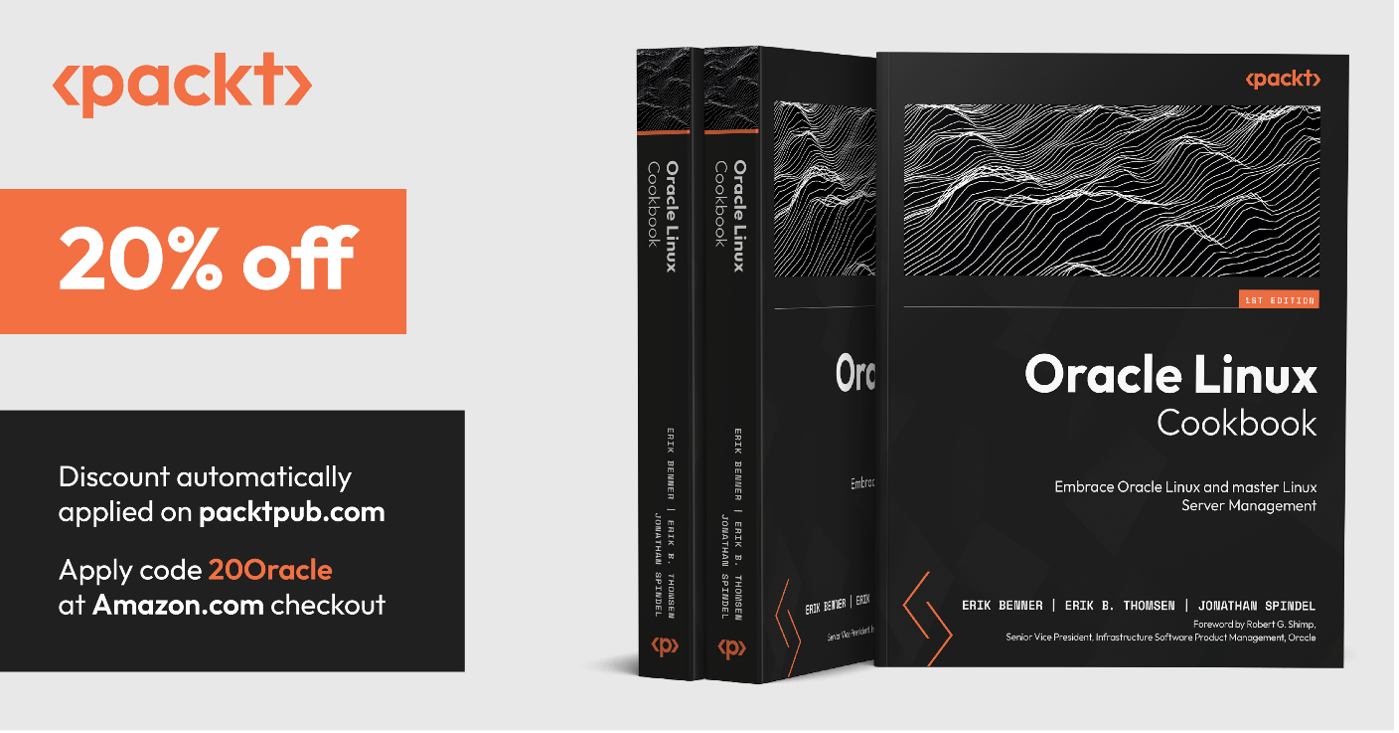This post was originally published in February 2024. It has been updated with a special offer from the publisher.
Oracle Linux Cookbook 1st edition includes combined knowledge coming from three well known experts on Linux:
- Erik Benner is currently an Oracle ACE Director and VP of Enterprise Transformation at Mythics, serving as a lead strategist for federal, state, and local government and commercial customers throughout the United States.
- Erik B. Thomsen is a Principal Sales Consultant at Oracle, passionate about Linux, cloud-native technologies, and “Everything as Code.”
- Jonathan Spindel is a Senior Solutions Architect at Amelia, leverages his 23+ years of expertise in data center and cloud infrastructure.
The book is truly one-of-a-kind and covers many different topics and how to’s on Oracle Linux, Ksplice, Security, Automation, Containers, Ansible, VirtualBox, Cloud and more.
Special Offer from Packt Publishing: Through August 2024, your purchase is eligible for a 20% discount! Order now on:
-
packtpub.com
-
Amazon US’ website* by entering discount code 20Oracle at checkout!
* amazon.com website is for US only orders.

Here the information coming from the back cover:
Discover the power of Oracle Linux 8, the free and enterprise-grade Linux distribution designed for use in any environment, with this recipe-style book.
Starting with instructions on how to obtain Oracle Linux for both x86 and ARM-based platforms, this book walks you through various installation methods, from running it as a Windows service to installing it on a Raspberry Pi. It unravels advanced topics such as system upgrades using Leapp for major version transitions and using a PXE server and kickstart files for more advanced installations. The book then delves into swapping kernels to take advantage of Oracle’s UEK, exploring boot options, managing software with DNF, and achieving high availability. Detailed recipes involving security topics will assist with tasks such as data encryption, both at rest and in motion.
For developers, it offers guidance on building RPM files, using Docker and Podman in a containerized environment, working with AppStreams, and more. For large-scale deployments, the book introduces Oracle Linux Automation Manager for enterprise-level Ansible utilization, from setting up the Ansible server to basic playbook writing. Finally, you’ll discover strategies for cloud migration.
By the end of this book, you’ll possess a comprehensive toolkit that will elevate your skills as a Linux Administrator.
I am thankful to these authors and Packt for their great work and, at the same time, suggest this book to anyone approaching Oracle Linux as well as experts already working on it. As Robert Shimp said in the book foreword:
“It’s time to get cooking with Oracle Linux“
Order your copy now with the publisher’s discount code 20Oracle to get your 20% savings.
